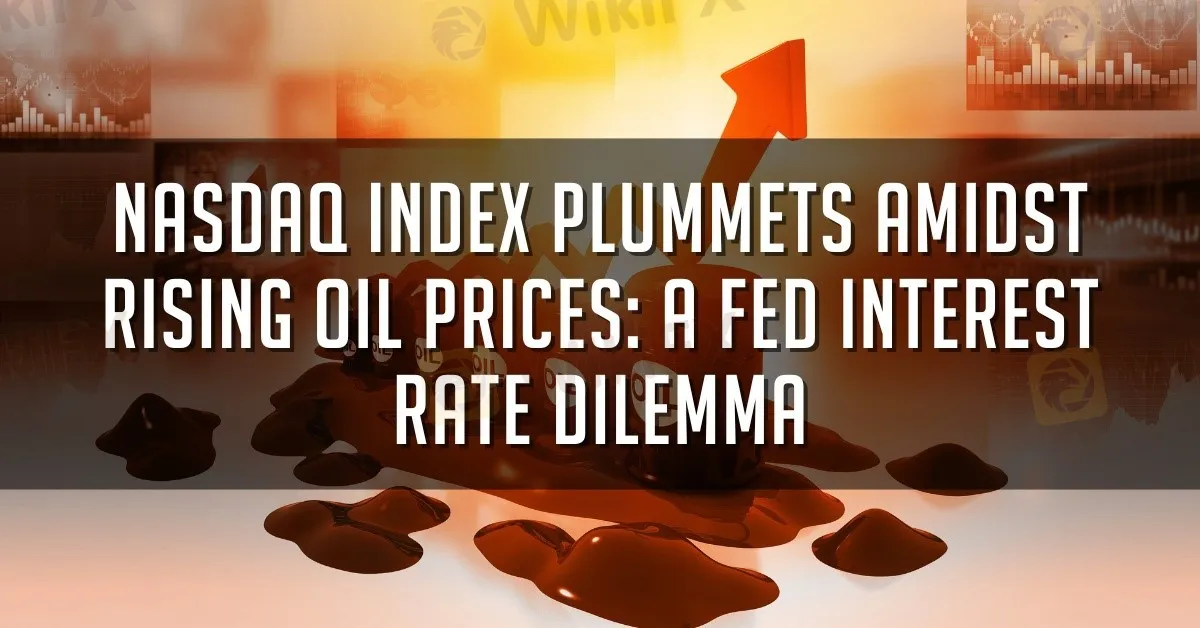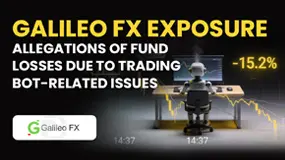Abstract:In an unstable market environment, the Nasdaq index experienced a severe devaluation, highlighting the correlation between the Federal Reserve's interest rate policies and escalating oil prices.

In an unstable market environment, the Nasdaq index experienced a severe devaluation, highlighting the correlation between the Federal Reserve's interest rate policies and escalating oil prices. There has been a noticeable change in the tone of ongoing conversations concerning the Federal Reserve's financial strategy. The emphasis is now more balanced, due to encouraging inflation figures and a steady job market.
Federal Reserve officials have displayed remarkable consistency and elevated interest rates in 11 of their last 12 meetings. In their most recent move in July, they pushed the range from 5.25% to 5.5%, marking a 22-year high. As the eagerly anticipated Fed meeting in September approaches, indications are that they may opt to maintain their current interest rates, affording them valuable time to assess the economy's response to the previous rate hikes.
The current debate revolves around the triggers that could prompt the Fed to consider raising rates again, potentially in November or December. In June, the consensus among most officials pointed to the necessity of a further quarter-point increase within the year. After the September meeting, projections might hint at another rate hike, but the ultimate decision remains uncertain.
However, the current focal point is the spiralling oil prices. The previous week saw oil prices surging to their peak levels for the year, with aspirations of breaching the coveted $100-per-barrel milestone before the year's end. Some analysts even postulate this milestone could be achieved sooner than expected.
Brent and WTI crude oil prices attained their highest points this year during the past week, marking a substantial ascent. Furthermore, these oil contracts have notched their third straight positive week amid ongoing concerns about supply constraints.
The recent rally in oil prices can be primarily attributed to strategic moves by Saudi Arabia and Russia aimed at depleting global oil inventories and extending their cuts in oil production until year-end. Saudi Arabia, the influential leader within OPEC, declared on September 5th its intention to continue its 1 million barrel per day production cut until the end of the year. Simultaneously, Russia, a crucial non-OPEC player, pledged to curtail oil exports by 300,000 barrels per day during the same period. Both nations have expressed their readiness to review these voluntary production cuts monthly.
It is imperative to recognise that oil prices wield substantial influence in determining inflationary pressures, given their impact on diverse sectors of the economy. As oil prices ascend, businesses across various industries contend with increased production and transportation expenses. This invariably translates to higher input costs, which may ultimately be passed on to consumers through elevated prices for goods and services. Furthermore, the surge in oil prices can reverberate through global supply chains, imposing cost pressures at various stages and potentially inflating prices for imported goods.
Considering these conditions, it's natural to wonder: Is there certainty that the Federal Reserve will conclusively end its ongoing rate increase cycle? A convergence of elements, such as the rise in oil prices, guarantees that the future of monetary policy is loaded with intricacies and unpredictabilities.










